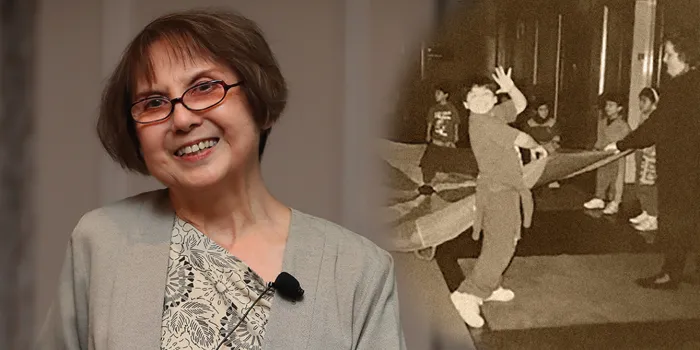During her more than 30 years as a social worker at the hemophilia treatment center at Children’s Memorial Hospital in Chicago (later named the Ann & Robert H. Lurie Children’s Hospital), Elizabeth Fung helped children with bleeding disorders and their families to feel empowered and hopeful by connecting them with educational events and social opportunities to mingle with others facing similar challenges.
Although she’s retired now, Fung is still helping families achieve these goals: She recently made a generous gift to the National Hemophilia Foundation (NHF), earmarking it for the Connections for Learning program. Her donation will provide scholarships to families so they can attend NHF’s annual Bleeding Disorders Conference and other relevant enrichment programs.
“The Bleeding Disorders Conferences are very, very helpful for parents,” Fung says. “They feel that there is a community that they belong to. It’s such a booster, both intellectually and (in giving a) sense of self-confidence.”
Fung attended NHF’s annual conference regularly, often meeting up with her patients and their parents onsite to guide them to family discussion groups. Back in Chicago, she regularly arranged patient field trips to help children and parents connect with peers within the bleeding disorders community. Fung continued to coordinate visits to sports arenas and other locations for years because her patients and their families enjoyed getting to know one another casually, outside of the treatment center.
“It really turned out to be fantastic, because families saw that they are not alone anymore…and also, they can socialize with the other families,” Fung says. “We had many, many opportunities to get to know each other.”
Fung says that educating families about bleeding disorders became much more hopeful during the 1970s, when the introduction of factor VIII concentrate enabled people with hemophilia to self-treat and gain greater independence.
“The freedom the parents experienced as their sons participated in the same activities as other boys was a joy to watch unfold,” Fung says. “At the same time, some children began to take greater and greater risks that required the social worker to help families become aware of the boundaries of what was safe and what was going too far.”
However, all of this changed again in the 1980s, when many families became isolated out of fear of being identified and stigmatized for having HIV or AIDS. She attended many patient graduations, weddings and, sadly, funerals to show support and solidarity with this deeply hurting community.
As advances in treatment over the next several decades improved patients’ quality of life, Fung helped families adjust to the changes, until her retirement in 2012. With her recent gift to NHF, she hopes to empower and encourage the next generation of families.
“I hope that this gift will help some families dream bigger dreams beyond the diagnosis of a bleeding disorder,” Fung says.

